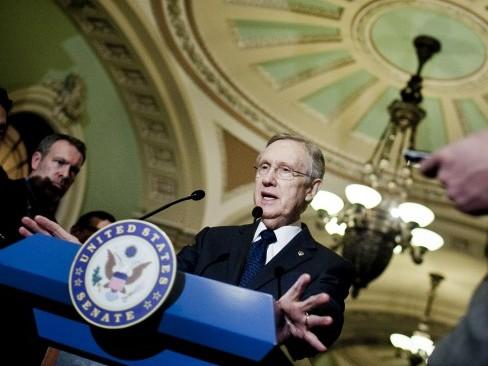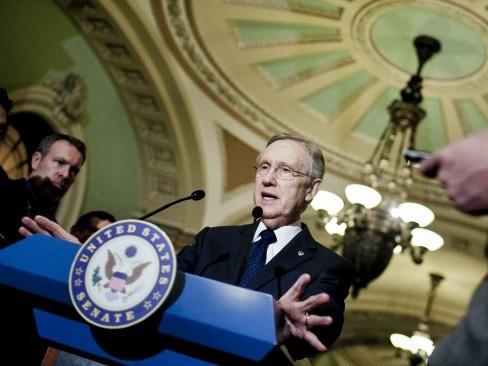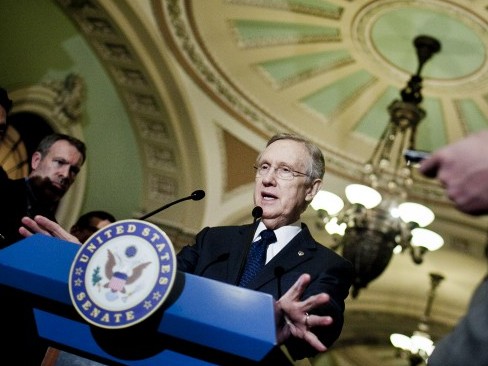The U.S. Senate approved major reforms to the struggling U.S. Postal Service (USPS) Wednesday but the Postal Service board says the reforms do not go far enough.
The Senate approved nearly $11 billion to help rebalance the agency’s finances, agreed that the Postal Service should move from six days to five day deliveries, and accepted that the network of post offices and mail distribution centers would have to be reduced.
The end of Saturday deliveries however would not occur for two years and senators made 39 amendments to the bill, including restrictions and delays on post office closures.
Senate Majority leader Harry Reid (D-Nev.) speaking on the Postal Reform Bill’s introduction to the Senate said he did not believe the legislation was “a perfect compromise” or would it save every post office. However, he said, “It is a good compromise, and a bipartisan one.
And will save an institution that has been part of the fabric of this nation for more than two centuries.”
Postmaster General Patrick Donahoe said the Senate’s legislation offered “valuable provisions,” but needed to go “further and faster” to save the U.S. Postal Service over the long term.
The USPS presently loses $24 million a day and has a debt of more than $13 billion, Donahoe said in a statement. “If this bill were to become law, the Postal Service would be back before the Congress within a few years requesting additional legislative reform.”
Speaking at a congressional hearing in March this year, Donahoe said the USPS was “at a crossroads. Our business model is broken.”
“If the Postal Service were a private company, we would be engaged in Chapter 11 bankruptcy proceedings,” he said.
Donahoe blamed “a restrictive business model and a permanent and fundamental shift away from first-class mail,” as contributors to the crisis but also noted that the rise of the Internet had had a huge impact.
While around 5 percent of people paid bills online, in 2000, more than 60 percent pay bills online today, according to USPS research.
The Postal Service had proposed a five-year business plan of its own but agreed to a five-month moratorium from December last year, now due to expire May 15.
The plan would include a Postal Service-sponsored health care system, freedom to conduct other revenue generating businesses and a massive scale-back of the service’s distribution network.
The plan could achieve cost reductions of $22.5 billion by 2016, the USPS says.
Reid said the U.S Postal Service was enshrined in the Constitution and while technological development had changed the world, the postal systems mission remained the same, with businesses, seniors, and rural areas still reliant on the post.
“Nearly half of rural households don’t have broadband Internet access, making it difficult or impossible to pay bills or ship packages online,” he said.
The current crisis had not changed the importance of that mission, he said, noting that the Postal Service employs over a half a million middle-class workers. A quarter of all postal employees were veterans of the U.S. Armed Forces, he added.
The bill will now go to the House for approval with a sense of urgency before the May deadline.
The House has its own Postal Service legislation in place. Sponsored by Darrell Issa (R-Calif.), the Issa-McCain Postal Reform Act proposes to reduce the network in a similar approach to that of the military in its base closure commission, while also reducing labor, cutting “unfunded mandates,” and reducing regulations on the service.
Issa, called the Senate legislation, “wholly unacceptable”, saying it would not stop the financial collapse of the Postal Service, but merely delay it by two years.
“The Senate bill has devolved a special interest spending binge that would actually make things worse,” he said in a statement.






